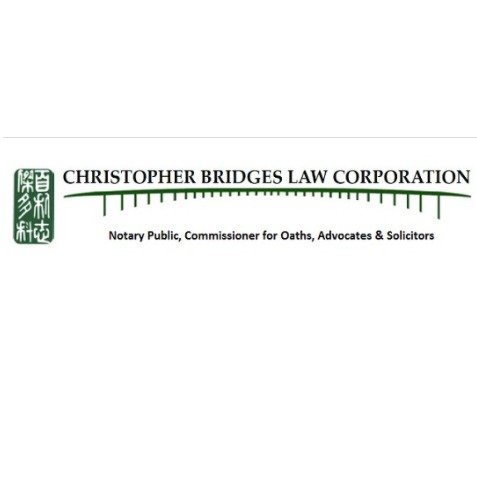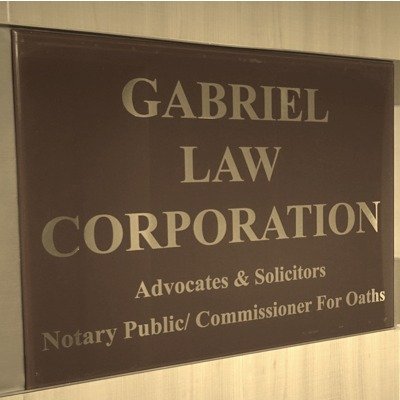Best Patent Lawyers in Singapore
Share your needs with us, get contacted by law firms.
Free. Takes 2 min.
Or refine your search by selecting a city:
List of the best lawyers in Singapore
About Patent Law in Singapore
Patent law in Singapore is governed by the Patents Act, which was first enacted in 1994 and has undergone various amendments to align with international standards. Patents in Singapore grant inventors exclusive rights to their inventions, promoting innovation by giving patent holders the exclusive ability to make, use, sell, or import their invention in Singapore. The Intellectual Property Office of Singapore (IPOS) is the governing body responsible for patent registration, and it plays a crucial role in managing and enforcing intellectual property rights in the country.
Why You May Need a Lawyer
Engaging a lawyer may be beneficial in various situations related to patents. Some common scenarios include:
- Filing a Patent Application: A lawyer can assist in preparing and submitting a patent application that meets all legal requirements, increasing the chances of approval.
- Patent Infringement: If someone is infringing on your patent rights or if you're accused of infringement, a lawyer can provide guidance on legal recourse and defense.
- Licensing Agreements: When licensing your patent to a third party, a lawyer can help draft agreements that protect your interests.
- Patent Portfolio Management: For companies with multiple patents, lawyers can assist in strategic management to maximize value.
- International Patents: Lawyers can help navigate patent protection in multiple jurisdictions, considering Singapore's agreements with other countries.
Local Laws Overview
In Singapore, some key aspects of patent law include:
- Novelty: The invention must be new and not known to the public before the filing date.
- Inventive Step: The invention must not be obvious to someone skilled in the field.
- Industrial Applicability: The invention must have a practical application in any industry.
- Duration: Patents in Singapore are granted for up to 20 years, provided that annual renewal fees are paid after the fourth year.
- Examination Process: Patent applications in Singapore undergo a formal examination to ensure compliance with legal criteria.
- Enforcement: Patent holders have the right to take legal action against unauthorized use of their patented invention.
Frequently Asked Questions
What is a patent?
A patent is a form of intellectual property that grants its holder exclusive rights to the invention, allowing them to prohibit others from making, using, or selling it without permission.
How do I apply for a patent in Singapore?
You can apply for a patent through the IPOS by submitting an application with a detailed description of the invention, claims, and any necessary drawings.
How long does it take to get a patent in Singapore?
The patent granting process can take several years, depending on the complexity of the application and backlog at the IPOS. Accelerated examination paths are also available for certain cases.
What can be patented in Singapore?
Any new invention that has an inventive step and is industrially applicable can be patented, including products, processes, or methods.
When should I consider seeking patent protection?
You should consider seeking patent protection early in your innovation process, preferably before publicly disclosing your invention.
Can software be patented in Singapore?
Software as such cannot be patented, but if it contributes to a technical solution or process, it may be patentable.
How can a patent be infringed?
Patent infringement occurs when someone makes, uses, sells, or imports a patented invention without the patent holder's consent.
What is the cost of obtaining a patent in Singapore?
The cost includes official fees for filing and examination, as well as legal and agent fees, which can vary widely depending on the complexity of the application.
Can I apply for a patent if my invention is already publicly known?
No, the invention must be novel, meaning it cannot have been publicly disclosed anywhere in the world before the filing date.
What happens if the patent is not renewed?
If a patent is not renewed, it lapses, and the protection ceases, allowing others to use the invention freely.
Additional Resources
For further assistance and information, consider reaching out to the following:
- Intellectual Property Office of Singapore (IPOS): The primary authority on patents and intellectual property matters in Singapore.
- Law Society of Singapore: Offers resources and guidance on engaging legal services.
- Singapore Academy of Law: Provides legal information and specialist services related to patent law.
- Local Patent Law Firms: Many firms specialize in intellectual property and can offer tailored legal advice and services.
Next Steps
If you need legal assistance with patents, consider the following steps:
- Consult with a patent attorney to discuss your needs and explore your options.
- Gather all relevant documentation relating to your invention and any existing patents.
- Decide on the scope of protection needed, whether local or international, based on your business strategy.
- Begin the patent application process with the guidance of your legal advisor to ensure compliance with all regulations.
Lawzana helps you find the best lawyers and law firms in Singapore through a curated and pre-screened list of qualified legal professionals. Our platform offers rankings and detailed profiles of attorneys and law firms, allowing you to compare based on practice areas, including Patent, experience, and client feedback.
Each profile includes a description of the firm's areas of practice, client reviews, team members and partners, year of establishment, spoken languages, office locations, contact information, social media presence, and any published articles or resources. Most firms on our platform speak English and are experienced in both local and international legal matters.
Get a quote from top-rated law firms in Singapore — quickly, securely, and without unnecessary hassle.
Disclaimer:
The information provided on this page is for general informational purposes only and does not constitute legal advice. While we strive to ensure the accuracy and relevance of the content, legal information may change over time, and interpretations of the law can vary. You should always consult with a qualified legal professional for advice specific to your situation.
We disclaim all liability for actions taken or not taken based on the content of this page. If you believe any information is incorrect or outdated, please contact us, and we will review and update it where appropriate.
Browse patent law firms by city in Singapore
Refine your search by selecting a city.














